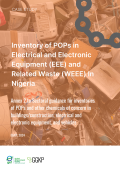
This case study updates Nigeria’s assessment of POPs in the EEE/WEEE sector, building on the country's 2012 inventory under the Basel Convention. It focuses on the presence of PBDEs, decaBDE, HBCD, Dechlorane Plus, SCCPs, and candidate POPs like MCCPs, providing insights into their occurrence and management.
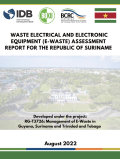
This study focuses on e-waste generation and management in Suriname. lt also evaluates the feasibility of setting up a sub-regional dismantling e-waste facility in the South American nation.
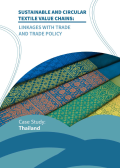
This paper looks at environmental hotspots in textile value chains in Thailand and trade policy instruments that can have an impact on sustainability and circularity.
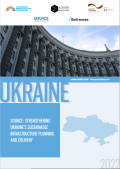
The case study details the use of the SOURCE platform to strengthen Ukraine's capacity for sustainable infrastructure.
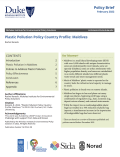
This document outline: the nature of the plastic pollution problem in Maldives, and available information about the national, subnational and international policy landscape guiding government approaches to the plastic pollution problem in the country.
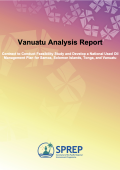
This report documents used oil production and existing used oil collection, storage, treatment, disposal and export services in Vanuatu to determine logistical issues and opportunities related to national used oil management.
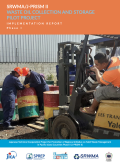
The report covers the waste oil activities implemented in Samoa and presents procedures, results and issues of the waste oil collection during the study.
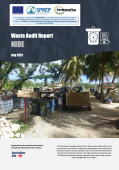
The report, prepared by SPREP in collaboration with (T+TI), presents the findings of the waste audit undertaken for the Pacific island nation of Niue.
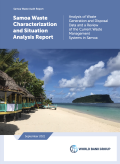
This report presents the findings of a study that includes an overview of the Samoan waste sector, current resource recovery, and institutional arrangements, private sector engagement and available infrastructure for both waste management and recycling.
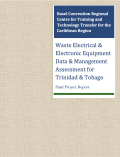
This report documents the outcomes of a rapid assessment on the waste electrical and electronic equipment (WEEE) waste stream in the Caribbean island nation.
